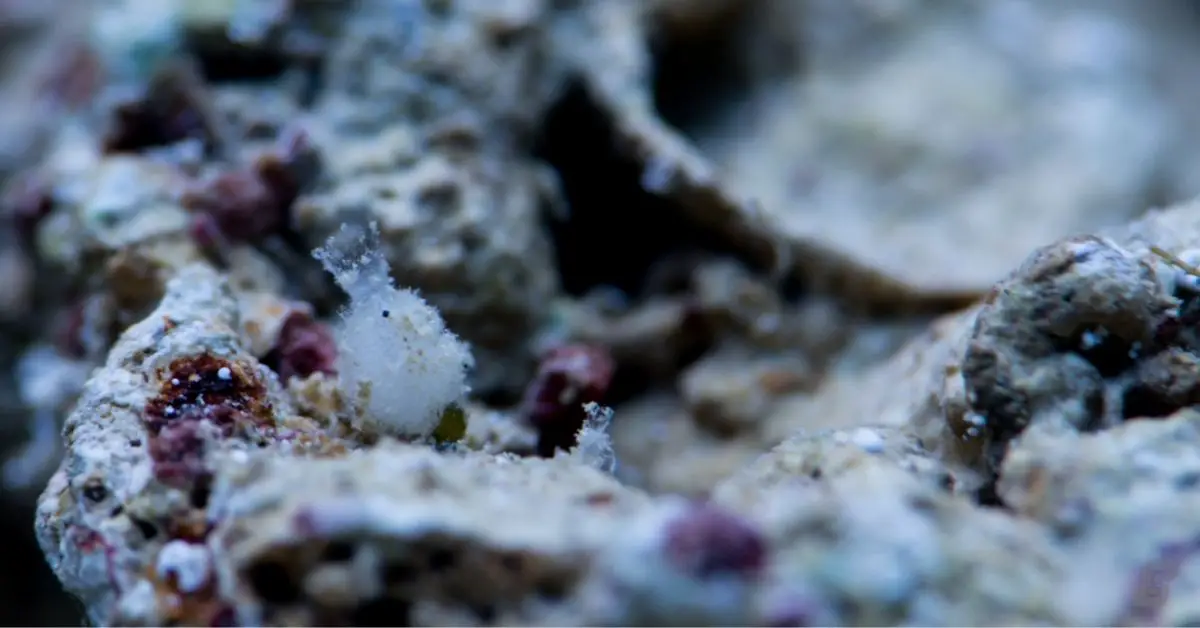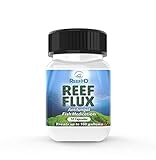Any carnivorous fish will probably eat sponges. Some types of fish or creatures that eat sponges are angelfish and some nudibranchs. There are some other sea creatures that eat sponges as well, for example, sea turtles.
What are pineapple sponges?
Known as Scypha or Sycon. It is a small sponge-like marine creature you can find attached to solid objects, such as rock and shells, and corals. It is usually attached by a sticky secretion. Usually, they are found in water that is up to 6 feet deep, where waves are providing food for these creatures.
It is usually a colonial sponge, but on occasion, you might find individuals laying about. These sponges are usually tubular in shape and are between one and three inches long. They feed on organic matter and small living organisms.
The water current actually plays a huge role in the survival of sponges. The water current actually brings the food and oxygen and it also takes away any excreted, undigested food and waste. Typically, the current of water flows through the sponge.
Instant Ocean Reef Crystals Reef Salt For 160 Gallons, Enriched Formulation For Aquariums
$66.79 (as of November 13, 2025 01:21 GMT +02:00 - More infoProduct prices and availability are accurate as of the date/time indicated and are subject to change. Any price and availability information displayed on [relevant Amazon Site(s), as applicable] at the time of purchase will apply to the purchase of this product.)Seachem Reef Glue Cyanoacrylate Gel Coral Frag Mounting, 20g (001167)
$9.99 (as of February 4, 2026 23:16 GMT +02:00 - More infoProduct prices and availability are accurate as of the date/time indicated and are subject to change. Any price and availability information displayed on [relevant Amazon Site(s), as applicable] at the time of purchase will apply to the purchase of this product.)ReefHD Reef Flux Anti-Fungal Treatment (100 gal)
They can grow up to around 4 inches long and the surface is usually ‘hairy’, well at least sometimes they look hairy. Usually, they can be identified by just looking at them, but do make sure you compare your sponge to all common species to ensure correct identification.
Their reproduction is very fascinating. They reproduce both sexually and asexually. Asexual happens by budding and regeneration. Budding means a small bud appears on the base of an adult sponge and it will grow into full size.
Sponges have very high regenerative powers. Any piece of the body of a sponge can regenerate and grow into a complete sponge if it is in the right environment.
Usually, pineapple sponges are an off-white, grey, or brown color and they are quite soft.
Are sponges bad?
It is very common to find sponges in a typical coral reef environment. They can be useful as well as harmful. Some sponges can grow on corals and keep the coral pieces together, while others might damage the coral which is not good for marine life.
Again, depending on species, some can harm your reef. If you see a pink, red or blue variety, those are not pineapple sponges and even though they look very pretty they don’t play well with other reef animals, specifically corals.
So, are sponges good for reef tanks?
Pineapple sponges are not harmful to your tank, and your creatures. They only feed on algae really, so it won’t damage your coral. They can actually filter the water, and sometimes tiny little creatures might hide between the sponges seeking shelter. Most of the time it is encouraged that you leave the pineapple sponges alone in your tanks.
However, most sponges don’t do well in captivity. So, even if you have some in your reef, they might not survive for a long time. Especially if paired with any fish that consumes it, which we talk about later on.
How to get rid of pineapple sponges?
You should not scrape it off, because if any tiny particle is left, it has the ability to just regenerate as we discussed earlier in the article.
These sponges actually survive on the nutrients in the water. Once those nutrients disappear, so will the pineapple sponges.
Usually, if you have an excessive amount of sponges, it is because your water is very nutritious, but don’t worry they actually are able to regulate themselves. I wouldn’t remove them as they are harmless, and again, they filter the water.
The only issue they might cause is they might eat up all the nutrients you put in for your aquatic creatures, so keep an eye on them to make sure they don’t take away everything from your beautiful fish or coral.
Which marine creatures can eat pineapple sponges?
Angelfish
Angelfish is the most popular choice for any aquarium. They are very graceful fish, and they make a gorgeous addition to larger aquariums. Angelfish grow to be quite large, so they require to be placed into a large aquarium.
They are very peaceful, but they will not hesitate to eat smaller fish. They are not aggressive; they just take the opportunity if it arises to eat any fish that fits into their mouth.
So, if you have sponges in your aquarium, and you are looking to put an angelfish in the tank, make sure the tank is big enough and you don’t have anything in the tank that the angelfish might see as an opportunistic meal, aside from the sponge.
Nudibranch
Nudibranchs are carnivorous marine gastropods. They live up to 1 year and they are relatively small. Usually, they are between a quarter to around 12 inches in size. They come in different shapes and sizes and there are over 2000 known nudibranch species in the world.
They love grazing on algae, sponges, corals, and even their own kind. They have two very sensitive tentacles which help them identify their prey. Those tentacles are called rhinophores, and they are located on top of the head.
Some species of nudibranch are predators, but actually are reef safe. However, most should not be kept in an aquarium, so some of the nudibranchs are not something to consider for your home tank.
Sea Turtles
Sea turtles make beautiful and fascinating creatures. They are omnivores, and they like a variety of foods. Some sea turtles like lettuce, fresh parsley, and some of them eat sponges as well. Some species like changing what they eat as they grow older.
Fun fact to read: One of the sea turtles that are known for eating sponges is a hawksbill, but that is definitely not something to keep in your house. They are large turtles, and they can eat up to 1200lbs worth of sponges each year. That is a lot!












1 thought on “Pineapple Sponges – Fish and Other Creatures That Can Eat Them”
Comments are closed.